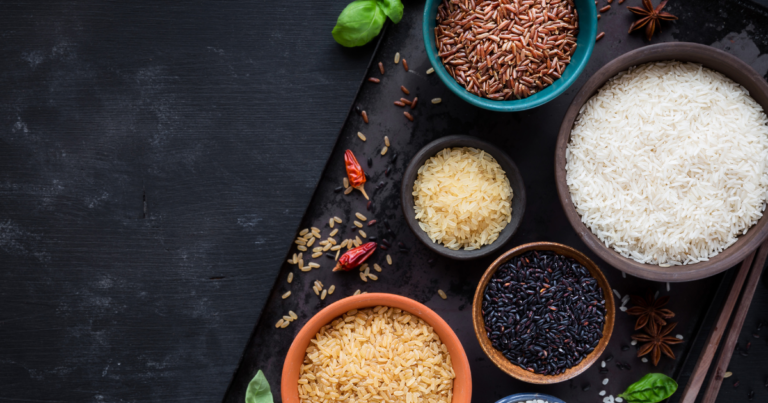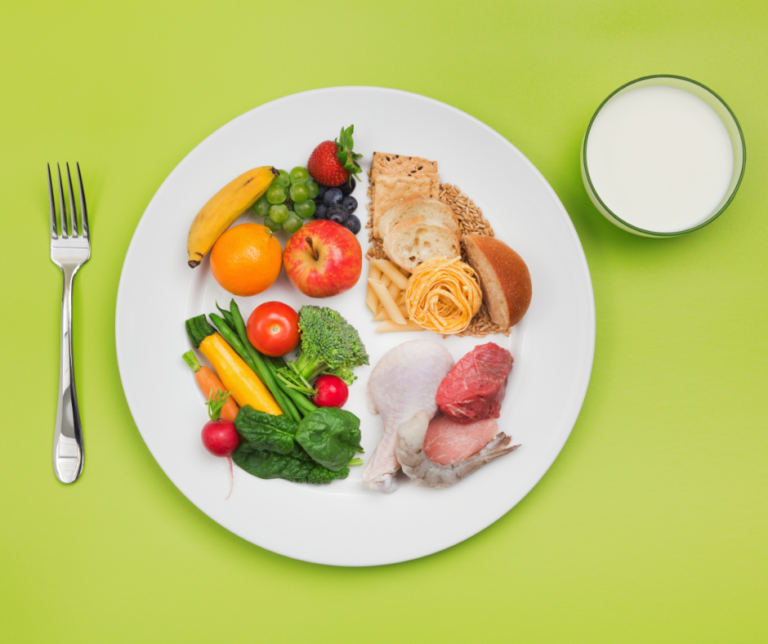Hey there, fellow Malaysians! Have you ever found yourself torn between the comforting embrace of traditional dishes and the allure of modern wellness trends? Striking the right balance between the food our grandparents loved and the latest superfood craze isn’t always easy. But fear not! Let’s dive into some practical tips to keep both your taste buds and your well-being happy.
1. Embrace Malaysian Superfoods
Growing up, my grandma always insisted on a cup of lemongrass tea when I felt under the weather. Turns out, she was onto something! Lemongrass, pandan, and turmeric aren’t just aromatic additions to our dishes; they’re superfoods packed with antioxidants and anti-inflammatory goodness. So, whenever you can, sprinkle a little tradition into your meals and reap the health benefits.

Remember, it’s not just about the taste. Lemongrass tea, a staple in many Malaysian households, can work wonders for digestion and even provide a calming effect. It’s like a warm hug for your stomach! That’s probably why your favourite massage spa serves you Lemongrass tea before a self-pampering session too.
2. Switch Up Your Carbohydrates

Ah, rice—the heart of Malaysian meals. Growing up, our family gatherings were incomplete without a mound of fragrant white rice at the center. But let’s spice things up a bit. While white rice is a classic, consider weaving in some brown rice, red rice, quinoa, or oats for that extra fiber and a nutrient boost.
My uncle, a fitness enthusiast, made the switch to brown rice a few years back. He swears by its sustained energy release and the added nutritional punch. It took some getting used to, but now, he much prefers brown rice over white rice even when eating curry or sambal.
3. Opt for Lean Proteins - Malaysian Style
Chicken rendang, ikan bakar, or a well-cooked rendang-flavored tofu—Malaysian cuisine has protein-packed delights for every palate. Consider leaning towards leaner options like grilled fish, skinless chicken, or tofu for a healthy dose of protein without the guilt.
My friends and I started a monthly BBQ night, featuring the local favorite, ikan bakar. Grilling it up not only brought out that tantalizing flavor but also kept our protein choices on the healthier side. Who said healthy eating can’t be deliciously fun?
4. Practice Mindful Eating
In our fast-paced lives, sitting down for a slow, mindful meal can feel like a luxury. But trust me, it’s worth it. Picture this: a quiet evening, your favorite dish in front of you, and the world on pause. Savor each bite, listen to your body, and enjoy the experience.
Also, did you know that mindful eating can help you improve your digestion and make you more aware of your body’s signals so you’ll be less likely to overeat. Make mindful eating a daily self-care ritual for better digestive health and weight management.
5. Stay Hydrated with a Tropical Touch
Although plain water is our number 1 bestie, Malaysia offers a tropical paradise of hydrating alternatives. Coconut water, barley drinks, and herbal teas not only quench your thirst but also bring unique health benefits. It’s like a hydration vacation for your taste buds!

Coconut water is a natural electrolyte-packed elixir. This makes it the ultimate beverage of choice, particularly during a hot sunny day, as a post-exercise favorite or a soothing refreshment when feeling ill. Barley drinks, steeped in tradition, not only offer a pleasant taste but also deliver a nutrient-rich boost, promoting digestion and supporting overall well-being.
Teas such as lemongrass, mata kucing and chrysanthemum teas are herbal wonders that offer a range of flavours and health benefits. Lemongrass, known for its calming properties, is also believed to help aid digestion. Air Mata Kucing, or Monk Fruit Longan Drink, is a popular and tasty drink in Malaysia. People believe it’s not just delicious but also has a cooling effect, which makes it good for soothing a sore throat or cough—it’s like a simple home remedy. Chrysanthemum tea, with its floral notes, not only pleases the palate but is also known for its antioxidant properties. Embracing these herbal teas is like taking a journey through Malaysia’s rich tapestry of flavors and wellness.
6. Customise Portions According to Individual Needs
We’re all unique, and so are our nutritional needs. Whether you’re a fitness buff or a desk warrior, make sure to adjust your portions to match your lifestyle, age, and health goals. Listen to your body’s cues. For some, smaller and more frequent meals suit them better and help in maintaining energy levels and metabolism. Whereas some thrive on having a big meal once a day with scheduled healthy snacking in between. It’s not about one-size-fits-all but finding what suits you best.
Suku, Suku, Separuh - A Healthy Plate

According to Ministry of Health Malaysia, a healthy meal follows the concept of ‘Suku Suku Separuh’ a visual technique that makes it easy to know if your meal is considered a balanced meal. For adults, a 9 inches or 23cm diameter plate is recommended/ For children, a 7 inches or 18cm is ideal.
Divide your plate into three parts:
- ¼ of the plate for carbohyrates like rice and grains
- ¼ of the plate for meat or eggs
- ½ of the plate for vegetables and fruits
7.Fresh Finds for Better Nutrition
Opting for local fruits and vegetables is not just a culinary choice; it’s an eco-friendly decision that reduces carbon footprint and supports local farmers. Embrace the richness of Malaysian produce, forgoing the need for imported vegetables solely for their familiarity. Local gems like peria (bittergourd), eggplant, paku pakis (fern), kailan (Chinese broccoli), kangkung (water spinach), bayam (amaranth), and more offer a diverse array of flavors and pack a powerful nutritional punch.
Peria, for instance, with its bitterness, brings a host of health benefits, including digestion aid and antioxidant support. Eggplant, rich in fiber and antioxidants, adds a deliciously meaty texture to dishes. Paku pakis, a traditional fern, offers a unique taste along with a heap of vitamins. Kailan, kangkung, and bayam are not just culinary delights but also nutritional powerhouses, contributing to bone health, immune support, and overall well-being.
By choosing these local treasures, you not only savor the authentic taste of Malaysia but also contribute to the sustainability and health of your community.
8. Seek Professional Guidance
Our cultural practices are intertwined with our identity. Whether it’s the healing powers of traditional jamu or the elaborate feasts during festivities, embrace these practices as part of your holistic approach to nutrition. And hey, maybe you’re considering taking the modern approach with supplements?





When it comes to your unique health journey, a professional’s guidance is gold. Reach out to a registered dietitian or healthcare professional for personalized advice, especially when considering supplements. It’s like having a health navigator—someone who understands the twists and turns of your well-being.
Conclusion
So, there you have it — achieving a healthy lifestyle in Malaysia involves blending traditional culinary delights with contemporary wellness choices. From embracing local superfoods to mindful eating practices and exploring fresh local produce, every choice reflects a harmonious approach to well-being. Let’s take pride in the diversity of our cultural heritage and nurture ourselves in a way that resonates individually. Here’s to a flavorful and healthy life!
Check out our other locations all over Malaysia:
Stay connected with PMG Pharmacy
Stay in the loop with all things health and wellness. Follow us on social media for daily tips, exclusive offers and exciting updates. Click those icons below and let’s connect!



